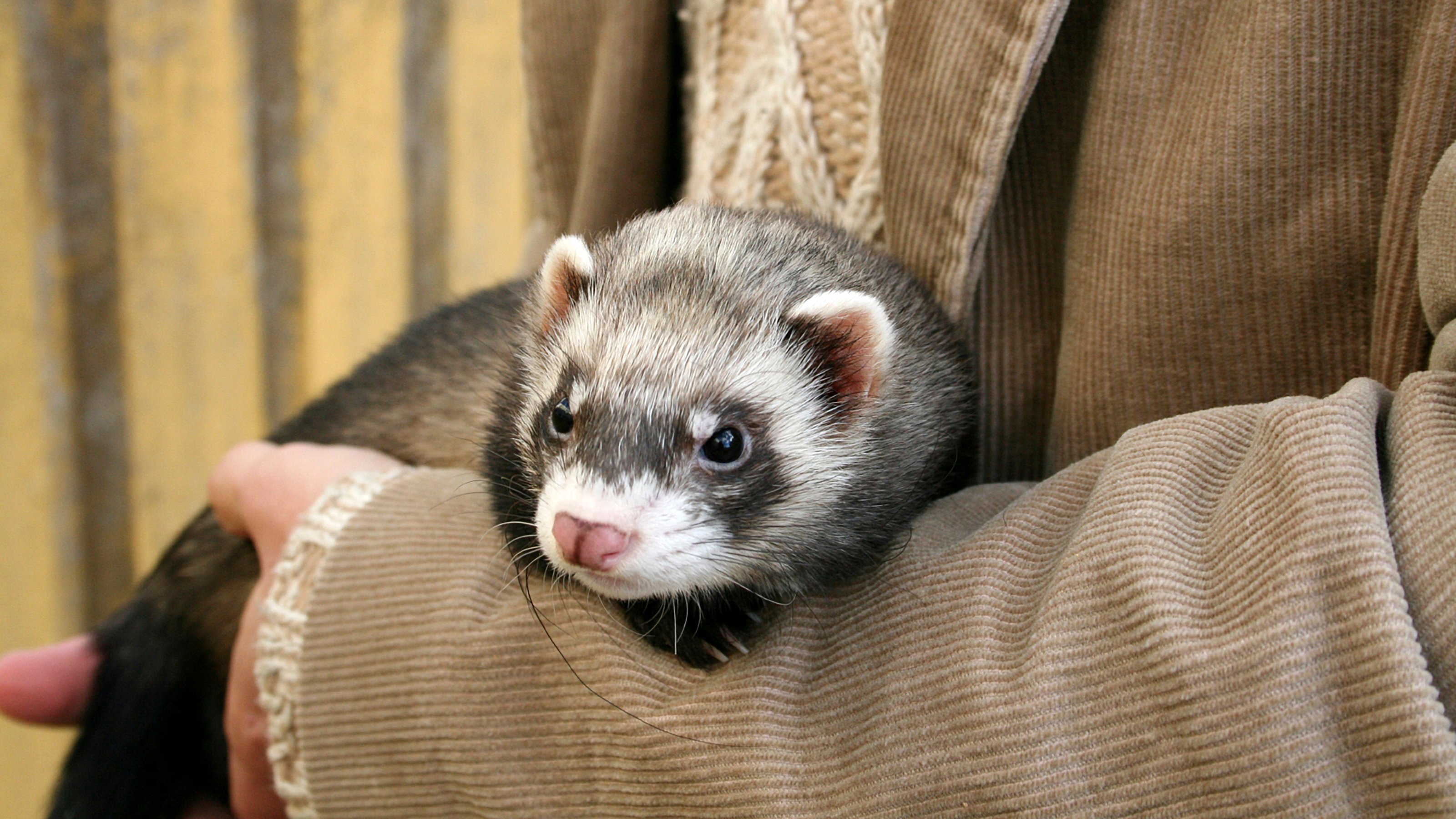
Giardia And Your Ferret
Giardia are a type of protozoa – a microscopic, single-celled parasite – which lives in the small intestines.
Most ferrets that have cryptosporidium have no signs; in fact, it is thought that half of ferrets may carry some cryptosporidium. Young kits, however, or ferrets with poor immune systems, may develop visible disease if they become infected.
More about giardia and your ferret
Giardia is a tiny organism, called a protozoa, made of only one cell! Infection with giardia is quite rare in ferrets, but can occur. Although any ferret can be affected with giardia, it is more likely in young ferrets or ferrets who are densely housed.
Giardia reproduce in the intestines by producing special infectious cysts which are released into the environment in faeces. Ferrets who ingest these cysts are then infected themselves. Giardia can infect many animals as well as ferrets, including cats, dogs and humans. This means that ferrets who are in contact with other animals are much more at risk of giardia.
Giardia can be difficult to diagnose, as ferrets which are affected often only have giardia in their faeces intermittently and may show no signs of infection. This means that a test can be negative, even if giardia are actually present – repeated tests may be needed to track this little parasite down!
As the infective cyst stage of giardia is found anywhere there has been contaminated faces, giardia can easily be picked up from the environment. Giardia likes water, and muddy puddles or other contaminated water sources are a common source of infection.
Giardia is often picked up from other animals in the household – sharing water bowls with dogs, for example, can increase the risk of a ferret picking up giardia.
As giardia can be found almost anywhere, it is impossible to stop your ferret from being exposed to giardia completely but luckily the risk of infection is quite low.
You can’t stop your ferret being exposed to cryptosporidium, but there are some top tips to reduce the risk of cryptosporidium:
- Keep your ferret's environment clean and routinely disinfected.
- Keep your ferret away from areas that might be contaminated by faeces from other infected animals.
- Avoid feeding uncooked meat, especially offal.
- Monitor, if you see your ferret has diarrhoea, get them in to see a vet. There are many things that can cause diarrhoea, and getting to the root of the problem will help you get the right treatment fast.
You can’t stop your ferret being exposed to giardia, but there are some top tips to reduce the risk of giardia:
- Keep your ferret's environment clean and routinely disinfected.
- Keep your ferret away from areas that might be contaminated by faeces from other infected animals.
- If you use them, use boarding facilities that you trust and are cleaned regularly densely populated areas are much more likely to harbour giardia.
- Monitor, if you see your ferret has diarrhoea, get them in to see a vet. There are many things that can cause diarrhoea, and getting to the root of the problem will help you get the right treatment fast.
If you think your ferret might have a giardia infection, the best thing to do is to go to your vet. They can do a full physical examination, and check your ferret over from nose to tail, especially as diarrhoea can have many causes!
To diagnose giardia your vet may recommend faecal tests. These will look for the giardia themselves, which are invisible to the human eye. These tests are often part of finding out why a ferret has diarrhoea, and may also look for common bacteria and other parasites too. Faecal tests may have to be done over several days as giardia can be quite elusive!
If your ferret does have giardia, your vet can prescribe suitable medication to treat the infection.
Giardia isn’t fussy and will infect lots of species, including humans – in fact, it is the most common intestinal parasite in humans worldwide! If your ferret has giardia, make sure everyone in the family is practicing good hand hygiene, and deep-clean and disinfect any areas your ferret goes to the toilet if possible.
If you think you may have been exposed to giardia, and are concerned, always contact your doctor for advice.
